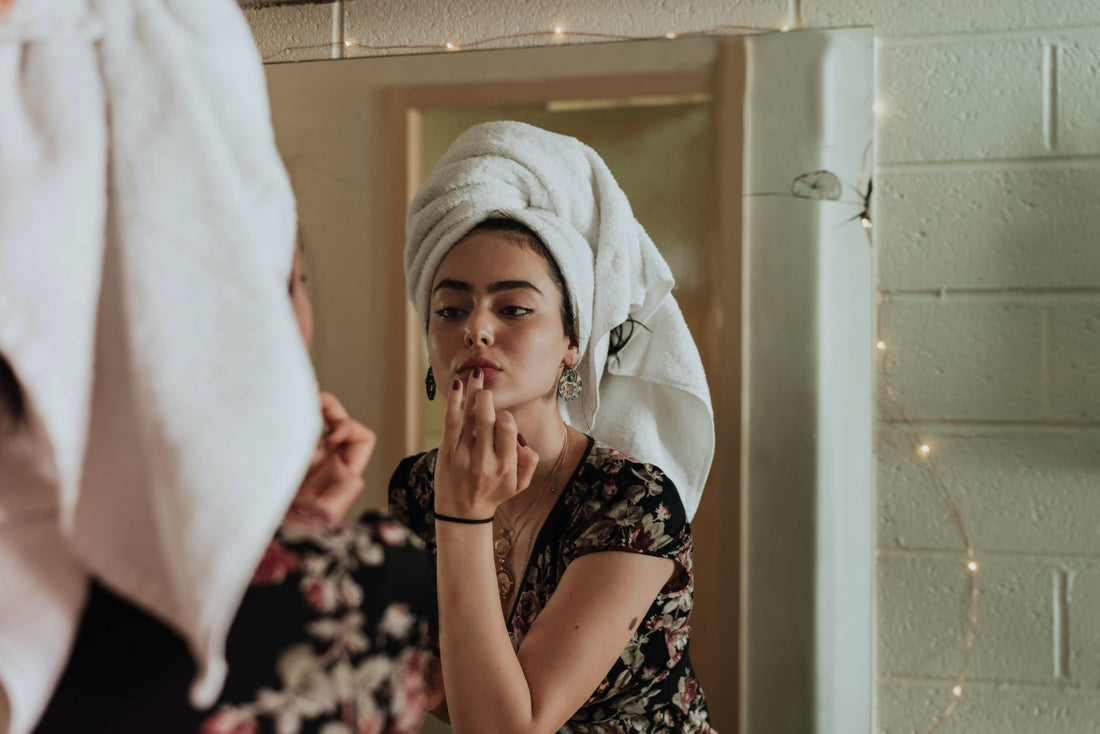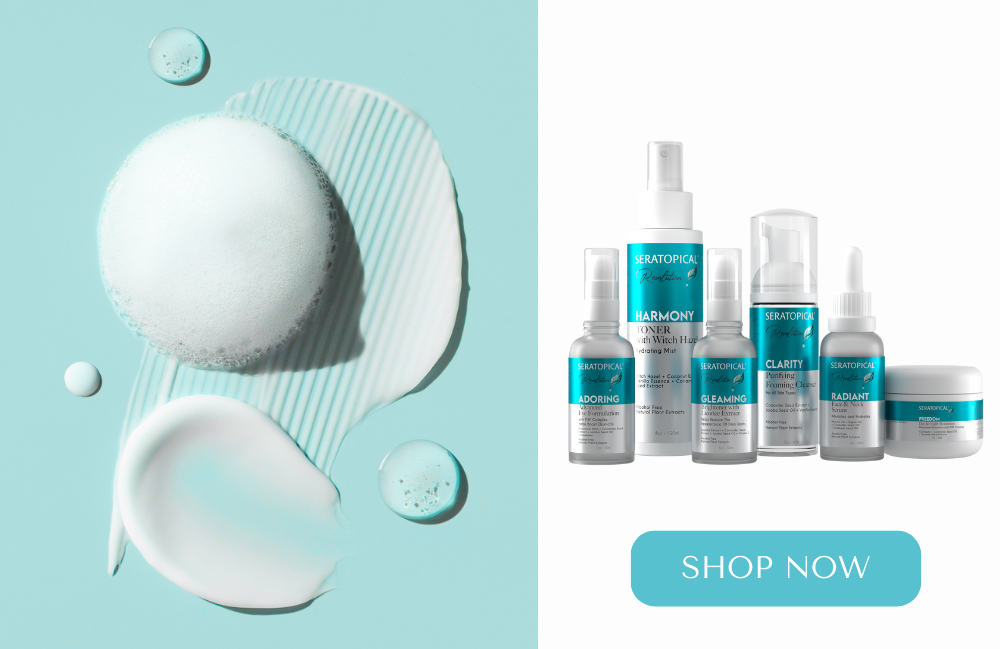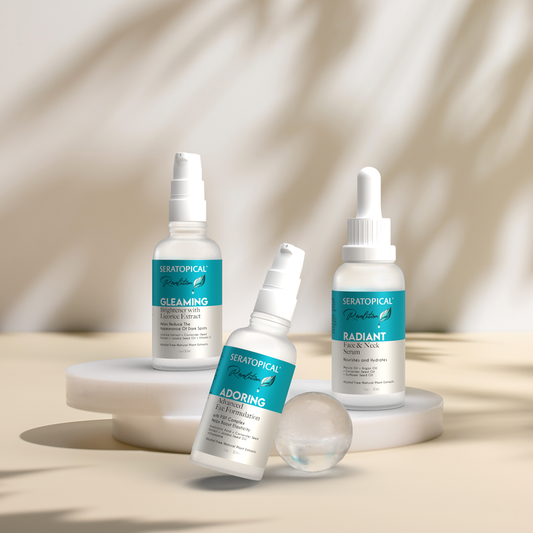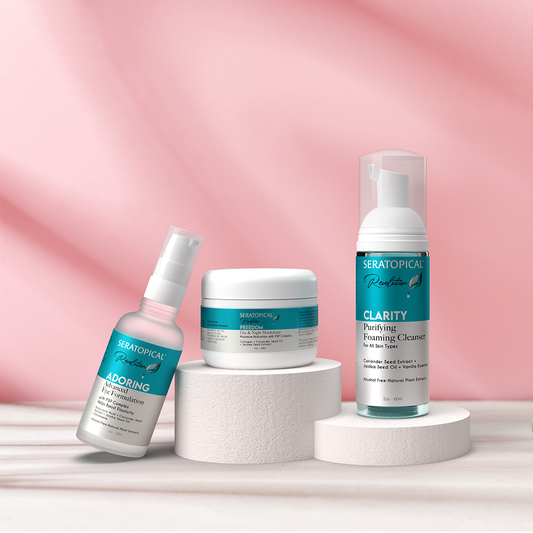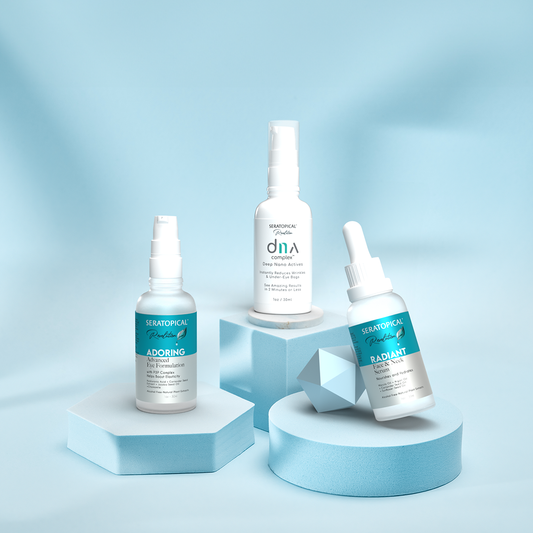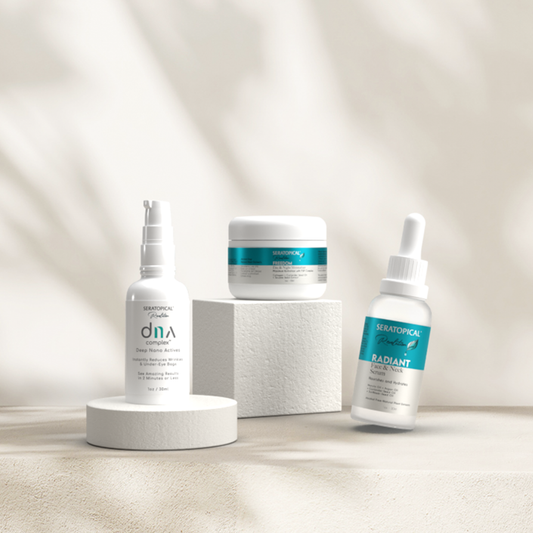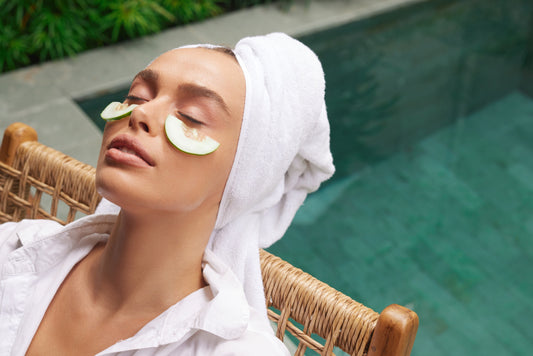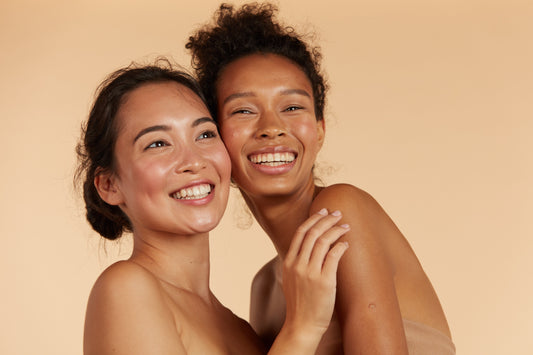Your skincare products might be hiding something you haven’t thought twice about: alcohol. Alcohol is found in several forms—including some that can dry out the skin further and make it more susceptible to irritation. Other forms of alcohol can actually help hydrate the skin.
In recent years, though, the conversation around alcohol in skincare has become a controversial one. Is it something that we should all stay away from? Or is it alright in moderation? We’re exploring the facts to help you make the best decision for the health of your unique complexion.
Impact of Alcohol on the Skin
Alcohol in skincare can have various impacts on the skin, depending on the frequency and amount of consumption. Excessive alcohol consumption can dehydrate the skin, leading to dryness, dullness, and an increased appearance of fine lines and wrinkles. It can also exacerbate skin conditions like acne and rosacea, as alcohol dilates blood vessels and increases inflammation. Additionally, alcohol disrupts the skin's natural barrier function, making it more susceptible to environmental damage and premature aging.
Seratopical Revolution Suite stands out for being alcohol-free, making it a gentle yet effective skincare solution suitable for those with sensitive skin or seeking a non-drying formula.
Why Skincare Products Use Alcohol
Alcohol can be found in an array of different skincare products that include cosmetics, lotions, fragrances, shaving cream, oral care, and skin and hair products.
The U.S. Food and Drug Administration (FDA) defines alcohol as “a large and diverse family of chemicals, with different names and a variety of effects on the skin.”
There are many reasons consumers might find alcohol in their skincare products, as the ingredient makes “the product feel more elegant and light, and it can also improve the overall feel of the product by making it faster absorbing,” dermatologist Lauren Fine, MD at Chicago Cosmetic Surgery and Dermatology told EverydayHealth.com. Moreover, alcohol can also work as a potential preservative. Typically, though, it doesn’t serve as the primary preservative as other ingredients fulfill that purpose.
What Skincare Products Usually Contain Alcohol?
Skincare products such as toners, astringents, and some types of cleansers often contain alcohol as an ingredient to help remove excess oil and tighten pores. Additionally, certain serums, lotions, and creams may also include alcohol for its preservative properties or to enhance product texture and absorption.
How Alcohol is Named on Skincare Ingredient Lists
You will see alcohol listed on skincare ingredient labels in some of these ways:
- Ethyl Alcohol Otherwise known as ethanol or grain alcohol, according to the FDA. Since ethyl alcohol is denatured, it can be used in cosmetics.
- Denatured Alcohol (Alcohol Denat) To bypass taxes on alcohol in cosmetics, some companies use denatured alcohol. This ingredient can be found in makeup, lotions, fragrance, and skin- and hair-care products. It has several other names too that include methyl alcohol and SD alcohol.
- Isopropyl Alcohol Chances are you’re aware of this by the universal household moniker “rubbing alcohol.” A wide variety of products use it including nail, hair, and skincare products. The ingredient can be used as an astringent, an antifoaming agent, as well as a solvent, per CosmeticsInfo.org.
- Methyl Alcohol or Methanol Keep an eye out for this in the bath products you purchase, says CosmeticsInfo.org. It’s classified as denatured alcohol.
- Benzyl Alcohol You will usually find this alcohol in fruits and teas, but soaps, cosmetics, cleansers, and hair products also boast it.
Helpful Types of Alcohol in Skincare
Is alcohol bad in skincare? Some helpful types of alcohol in skincare include fatty alcohols like cetyl alcohol and stearyl alcohol, which can provide moisturizing benefits and help to emulsify ingredients in skincare formulations. These alcohols are non-drying and can contribute to the overall texture and efficacy of skincare products.
Other Ingredients That Might Bother Your Skin
Other ingredients that might bother your skin include essential oils, and certain preservatives like parabens or formaldehyde releasers. These ingredients can potentially cause irritation, allergic reactions, or sensitivities in some individuals, so it's important to be mindful of them when selecting skincare products.
The Verdict: Is Alcohol in Skincare Bad?
If you're on the fence about avoiding or including alcohol in your skincare routine, it's best to consider the pros and cons. Alcohol does have the ability to intervene where oil has built up as it dissolves grease and dirt on the face, board-certified dermatologist Gretchen Frieling, MD, told EverydayHealth.com. But Dr. Frieling also made the point that you have to take your skin type and goals into consideration.
If one of your primary skincare goals is to look younger, the research shows alcohol seems to rear more cons than pros. If you see an especially drying type of alcohol usually listed on ingredient labels as SD alcohol, denatured alcohol, or less frequently, isopropyl alcohol among the top ingredients on a label, chances are it will dry out the skin. This is because denatured alcohol strips the skin of its natural oils, disrupting the skin's barrier.
Not only does this mean that more moisture can escape, but also that more irritants can seep in, making redness and sensitivity likely to increase. When skin reaches a certain threshold of dryness it can even result in a rebound-type of effect in which your skin produces more oil to make up for the loss, which could even lead to an uptick in breakouts.
Companies such as No. 7, L’Oreal, J.Lo Beauty, Chanel, and Olay use ethanol in their products to break down lipids in the stratum corneum making it more permeable to allow active ingredients to cross the barrier. The biggest problem? Ethanol disrupts the outer protective layer of the skin, decreasing its capacity to retain moisture. And we all know that skin hydration is essential for the proper function and appearance of the skin.
Seratopical Revolution Has the Solution
The Seratopical Revolution line uses two of CURE Pharmaceutical’s proprietary peptide delivery systems. These patented delivery systems use natural oils and surfactant systems for a cleaner, more stable, and less invasive delivery of active ingredients to the target area while leaving the active ingredients intact to do their job as intended. With this delivery system, the skin retains its capacity to retain moisture while the product stays alcohol-free.
This scientific breakthrough called the Triple Peptide Complex (P3P Complex) allows for enhanced hydration and collagen rejuvenation. When you have adequately hydrated skin, you’ll enjoy a healthier and more youthful complexion as you improve skin elasticity and reduce the appearance of fine lines and wrinkles.

